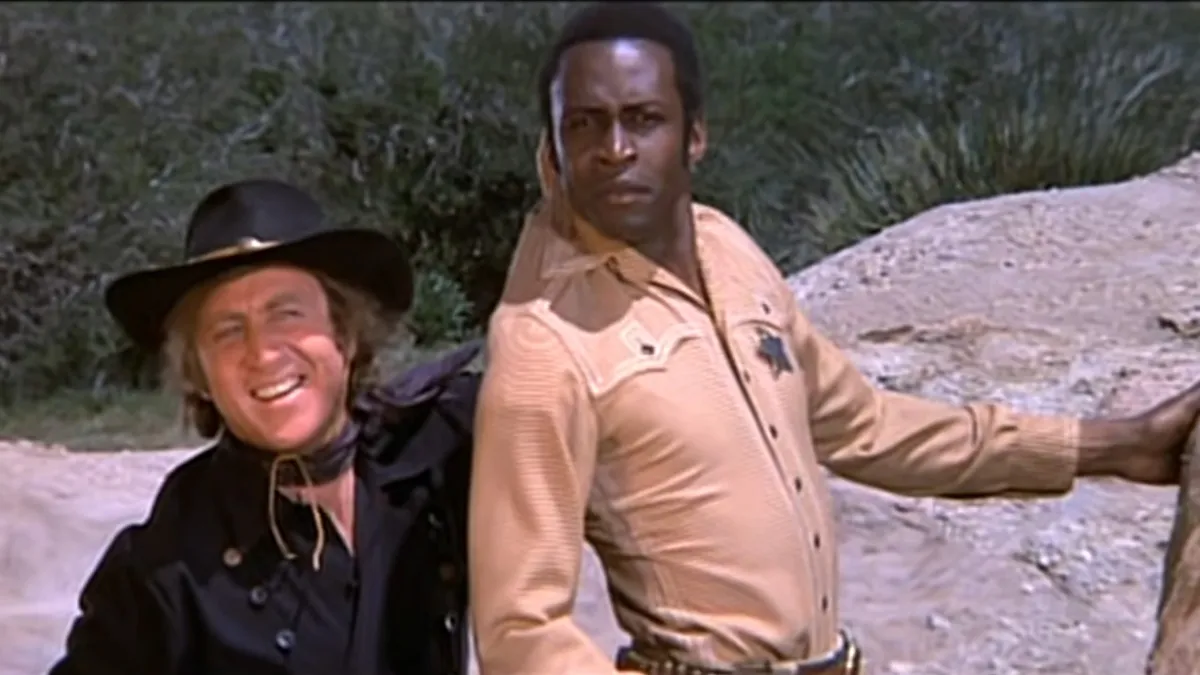
The 21st century has seen a slew of Black cowboys as movie heroes, but long before Idris Elba and David Oyelowo were breathing life into dreamy historical gunslingers, there wasn’t much representation out there. The Blacksplotation films of the 1970s were on the rise, stomping out the few gains that groundbreaking Black actors like Sydney Poiter had worked so hard for.
The best comedy is often born out of frustration, and legendary comedian Richard Pryor has been lauded as one of the best comedians of all time for his candid approach to conversations about race. With the help of Mel Brooks and a crack team of comedic writers, Pryor called out racists the only way he knew how; drop-dead hilarious jokes for the wildly inappropriate comedy, Blazing Saddles.
Who wrote Blazing Saddles?
For those unfamiliar, Blazing Saddles is the quintessential Western comedy. A small town is caught between a rock and a hard place when a corrupt politician, Headley Lamar (Harvey Korman) starts working with the local Railroad to evict the residents and install new ones. Lamat tries to drive out the townsfolk by hiring a Black miner, Bart (Cleavon Little) on his way to the gallows as the new sheriff. Bart partners with The Waco Kid (Gene Wilder) to save the town. But that wasn’t what the film was originally intended to be.
The initial idea came from Andrew Bergman (The Freshmen, It Could Happen to You), which he described as “H. Rap Brown (a prominent member of the Black Panther Party) meets the Old West.” The film was almost made with James Earl Jones as the main character, but it fell through at the last minute. It was then offered to Mel Brooks.
Brooks was fresh off his office flop, The Twelve Chairs, and had a newborn to support. Reluctant to take on someone else’s script but left with little choice, Brooks took the job – as long as he could rewrite the script. He was allowed, and Brooks harkened back to his early days as a writer in sketch comedy. To pull it off, he needed a crack team of comedians. He called Bergman back, tapped Norman Steinberg (Johnny Dangerously), Alan Uger (Family Ties), and most importantly, reached out to Richard Pryor.
Pryor was still in the early years of expanding his career from standup to the screen, but had already established his brand of speaking truth to power, and striking nerves over social commentary about race and the human condition. Brooks wanted Pryor’s candid commentary, and that “anything goes” spirit laced the script.
In the years since, Brooks has talked about the chaotic nature of the process; the comedians shouted outlandish ideas over one another in a desperate bid to make the others laugh. The result was a take-no-prisoners script that poked fun at everyone, liberally used the N-word (though likely less than it would have been used during the 1800s), and mocked the simple farmers, people of the land, and common clay of the West (morons) the most.
When was Blazing Saddles released?
The Western parody was almost scrapped before its release. Brooks recalled that during the preview presented to the executives at Warner Bros., the studio’s then-head of distribution recommended that they “dump” the film and take a loss. Despite the lackluster response from the studio, the movie premiered on February 7, 1974, at a drive-in movie theatre. Gene Wilder and Clevon Little watched the film from horseback.
The movie was met with mixed reviews. Critics were torn on the quality of the jokes, remarking that it was “middling comedy”, “outrageous and tasteless,” and too stuffed with gags. Others praised the non-stop humor and outlandish jokes, and the film was popular enough to spawn a prospective television series following Black Bart. The pilot was never picked up, but curious fans can find the single episode on the 20th anniversary DVD.
The film won the Writers Guild of America’s award for Best Comedy in 1975, and it was inducted into the National Film Registry in 2006 alongside Rocky, Halloween, and Groundhog Day, just to name a few.
Like a fine wine, Blazing Saddles’ reviews have gotten better with age. It now holds 88% on Rotten Tomatoes. The film has been rereleased several times over the years. Its ‘74 run made just under $28 million at the box office. The 1976 rereleased garnered $10.5 million, and the 1979 snagged a further $8 million.
from Movie News | Movie Reviews | Movie Trailers https://ift.tt/1vpZsOt



0 comments: